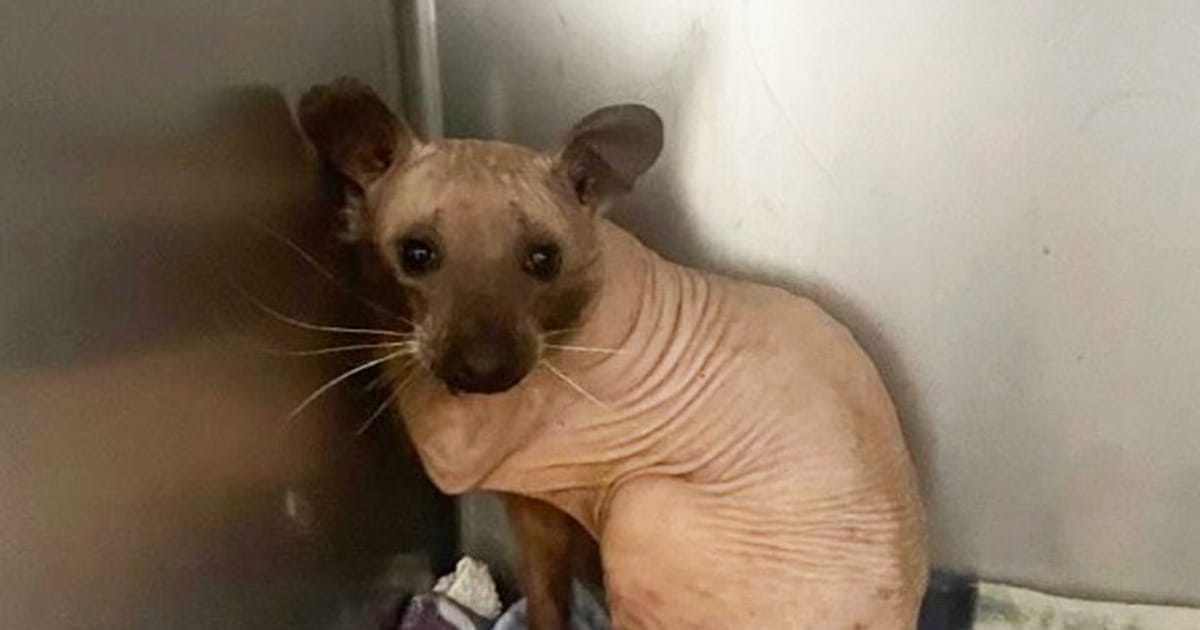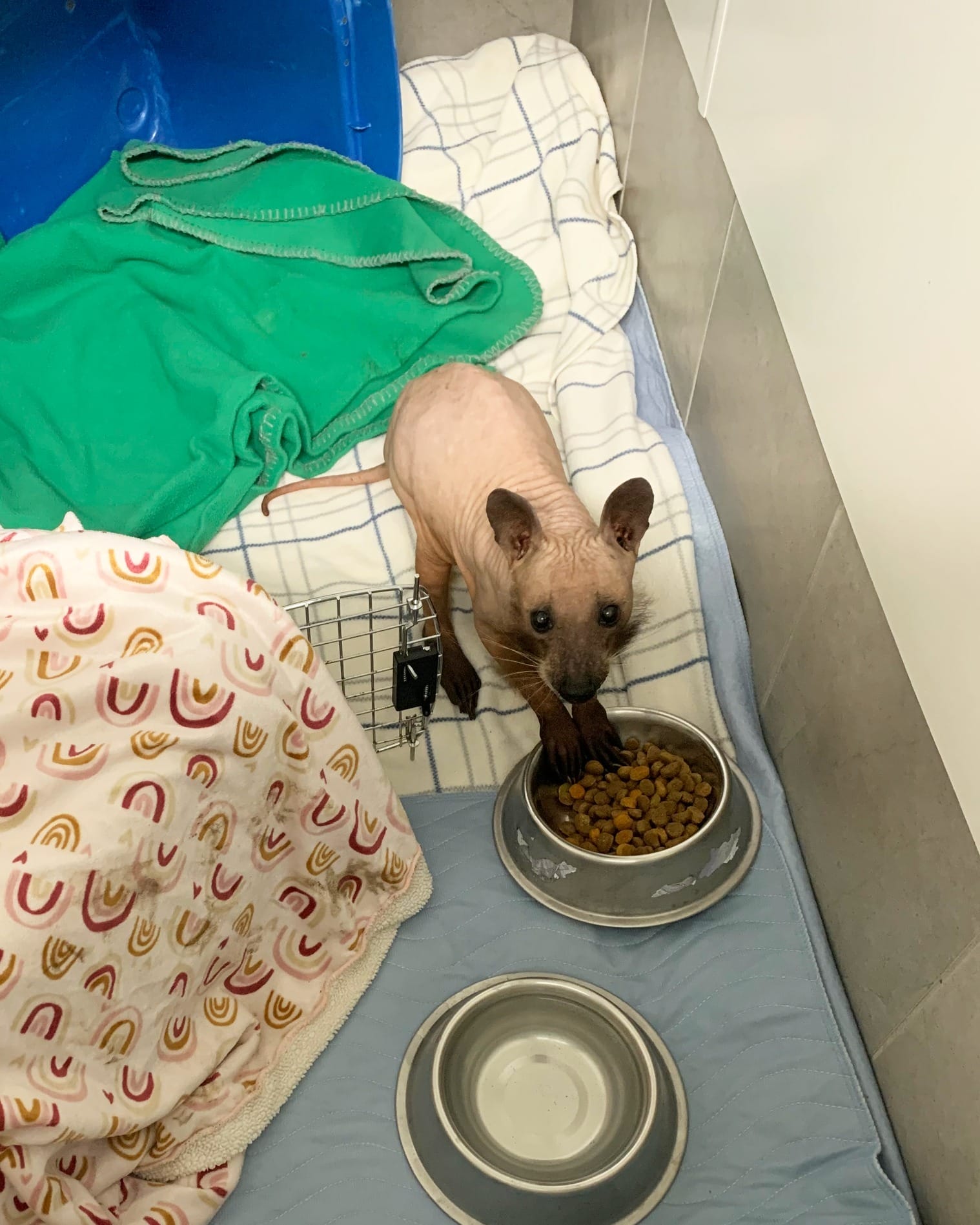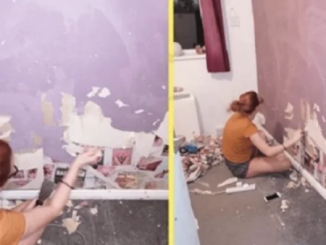
For animals, fur is more than simply a stylish accessory—it keeps them warm in the winter months. It also contributes to their distinct look. However, did you know that some animals could look drastically different when they are completely bald?

After being saved, an amazing creature that seemed like a hairless cat turned out to be an exceptional and unusual hairless raccoon. Let’s explore the tale of this unusual creature and her amazing survival!
Hope for Wildlife, a charitable conservation group based in Nova Scotia, had an unexpected guest last month. During the bitterly cold winter, a couple in West Arichat found a shivering animal in their property. The animal seemed like a Sphynx cat at first, but it was actually a completely bald raccoon!

Without its distinctive fur pattern that resembles a mask, raccoons are difficult to distinguish. This small animal, a northern raccoon, is completely bald as a result of severe alopecia. Although balding raccoons have been seen before, according to Hope for Wildlife director Hope Swinimer, this particular raccoon’s condition was the worst. It’s merely tufts of fur around the feet, ankles, and nose, she said. This situation is serious.
The raccoon was named Rufus, after the character from the show Kim Possible who was a naked mole rat, even though it was a female. The precise reason behind Rufus’ hair loss is still unknown. According to the rescue group, she might have an autoimmune disease that is harming her hair follicles. Since her skin seemed healthy, they ruled out conditions including parasites, mange, and fungal illnesses.

Raccoons depend on their fur to keep warm and shield them from the weather. The fact that Rufus avoided frostbite or worse throughout the hard winter without fur astounded the rescuers.
“We’re pretty amazed that this little lady survived the winter without fur and without getting frostbite or worse,” they gushed on Facebook. They went on to talk about Rufus’ lively attitude and said that her own willpower was the reason she was able to survive. Despite her initial state of debilitation, she eventually began to exhibit indications of recovery, developing resilience and strength.
Rufus might end up staying at the shelter permanently given the conditions. She’ll have a dedicated habitat with an outside area she can crawl into to be warm. In addition, the environment will provide conveniences like nesting boxes and hammocks.
This amazing hairless raccoon has us completely enthralled! We are happy that Rufus was discovered and is finally getting the attention she needs. It’s amazing how she was able to live in the wild for such a long time.Please tell people about this amazing story if you love animals!
WATCH : This Unusual Dance Routine by Two Girls Had the Entire Crowd On Their Feet from the Moment They Turned Around!
You would be incorrect to initially underestimate this dance routine’s mesmerizing power.
Irish dances like clogging, which are usually rather stunning, are characterized by their complex footwork and little upper body movement.
The routine shown in this video, however, gives the conventional approach a novel and thrilling twist.
This exciting clogging duet, performed by Madison and Morgan, was the highlight of the 2013 Clogging Champions of America – Showdown of Champions in Knoxville, Tennessee. Set to the lively track “Hit the Ground Runnin’” by Keith Urban, their performance departs from the traditional Irish music typically connected with clogging.

Madison and Morgan, dressed in white pants, clog shoes, and plaid shirts, break stereotypes from the very beginning.
The crowd roars with excitement as the two take the stage with their backs to the spectators, creating a thrilling atmosphere for their performance.
When the music starts, you can feel the excitement rising as Madison and Morgan whirl around quickly, beaming with joy. The pair is launched into motion by their coordinated footwork, hand-holding, and elegant spins.

The girls combine classic clogging techniques with contemporary flair throughout the routine, including stage circles, high kicks, and even an amazing high jump. Every motion in their dance is precisely timed, and it is flawlessly performed.

Madison and Morgan give the traditional dance style a modern twist by including upper body arm and hand moves that give the routine a lively, fun feel. A riveting performance that captivates audiences is created by fusing classic and modern components.
Viewers were astounded by the smooth transitions and deft footwork, and many expressed their amazement in the comments area. Some lauded clogging’s exuberance, while others got into a heated argument on how to categorize it.
Despite dissenting views, one commenter highlighted the rich cultural history of clogging and how it developed into a contemporary Irish-American dance form. Another confirmed the routine’s legitimacy by recognizing the classic steps mixed with modern components and drawing from their own expertise teaching clogging.



Leave a Reply